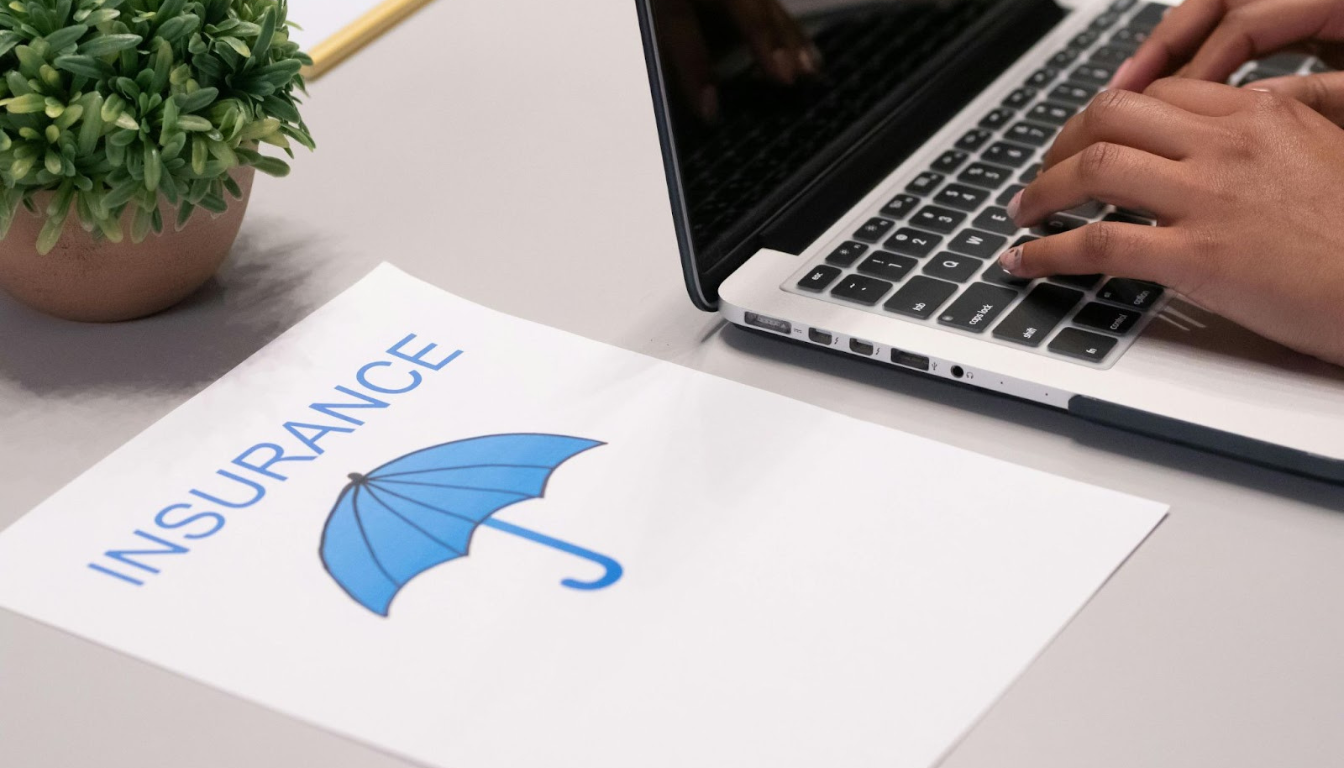Best Event Liability Insurance: Coverage & Protection for Your Needs

Event liability insurance protects you from costs related to accidents or damage during your corporate events or retreats. Many venues require this insurance. This article details what it covers, costs, and why it’s essential.
Key Takeaways
- Event liability insurance protects organizers from financial losses due to injuries or property damage during events and is often required by venues.
- Coverage options include third-party bodily injury, property damage, and host liquor liability, with costs influenced by factors like event type, location, and alcohol service.
- Event cancellation insurance safeguards against financial losses from unexpected event cancellations, but may exclude certain events like those related to pandemics.
Understanding Event Liability Insurance

Event liability insurance is a specialized form of liability insurance tailored to cover the unique risks associated with hosting special events. Whether it’s a wedding, corporate retreats, or private celebration, this insurance is designed to shield you from financial losses arising from property damage or injuries incurred during the event. Imagine the relief of knowing that if an accident occurs, you won’t be left to shoulder the financial burden alone.
Many venues require proof of event liability insurance and wedding insurance before they agree to host your event, including birthday parties. This is because they want to ensure that any potential damages or injuries are covered, protecting both the venue and the event organizer from legal and financial repercussions. From weddings to corporate parties, this insurance is a necessary step in the planning process.
Purchasing event insurance should coincide with making significant financial commitments, like initial deposits. Ideally, follow these guidelines to buy event insurance:
- Secure your policy no later than two weeks before the event or the day prior.
- This approach ensures coverage well in advance.
- It provides peace of mind as the event date nears.
Coverage Options for Event Liability Insurance

Event liability insurance offers a range of coverage options to protect against various risks. Standard coverage typically includes protection against third-party bodily injury and property damage that may occur during the event. For instance, your policy would cover incidents like a guest tripping and falling or an attendee accidentally damaging the venue. Additionally, event liability coverage can provide further peace of mind.
One important aspect to consider is liquor liability coverage, especially if you plan to serve alcohol at your corporate event. Host liquor liability insurance protects you from claims related to injuries or property damage caused by intoxicated guests. This coverage is particularly crucial if guests are allowed to serve themselves alcohol, as it significantly mitigates the associated risks.
Some venues may have specific insurance requirements based on the size and nature of the event. Therefore, it’s essential to discuss these details with your most venues to ensure you have the appropriate insurance coverage in place. Selecting the right coverage options helps tailor your policy to your event’s unique needs.
Cost of Event Liability Insurance
The cost of event liability insurance can vary widely based on several factors. A typical one-day event insurance policy ranges from $115 to $340. However, policies can start as low as $75, making it an affordable way to protect your investment. Understanding how much event insurance costs is essential for budgeting your event.
Factors influencing the cost include:
- The type of event
- Number of attendees
- Location
- Duration of coverage
- Whether alcohol will be served
For example, a large team offsite with hundreds of guests and an open bar will likely have a higher premium compared to a small, private meeting without alcohol. Additionally, higher liability limits generally require a higher minimum premium.
On average, a one-day special event insurance policy costs around $278, providing comprehensive protection for your event. For events spanning multiple days, costs average about $250 for 2 to 10 days and $282 for events lasting more than 10 days. An umbrella policy, which includes host liquor liability, can offer substantial coverage at an affordable rate, often under $200 annually for extensive protection.
Event Cancellation Coverage

Event cancellation insurance is a vital safeguard for your financial investment, especially for events with high upfront costs. This type of insurance covers losses from unforeseen cancellations or postponements due to various reasons, such as severe weather, venue unavailability, or terrorism threats. Imagine planning a large conference only to have it canceled due to a sudden storm. Event cancellation coverage can help mitigate the financial blow, and understanding the event cancellation policy is essential for comprehensive liability and cancellation protection. Additionally, considering event insurance cover can further enhance your protection.
Common causes for claims under event cancellation policies include:
- Vendor bankruptcy
- Accidents
- Illness
- Actual extreme weather
- Weather conditions
- Military deployment
This coverage can provide reimbursement for lost deposits and additional expenses incurred from relocating or rescheduling the event. It is crucial for protecting your investment and ensuring you’re not financially strained by unforeseen circumstances. Additionally, non refundable deposits can be a significant factor in your overall financial loss planning.
However, it’s important to note that event cancellation insurance typically excludes losses related to pandemics, such as COVID-19, and certain high-risk activities, including those caused by infectious disease. Understanding these exclusions is essential to ensure you have realistic expectations about what is covered and plan accordingly.
Why You Need Event Liability Insurance

Event liability insurance is designed to protect event organizers, company retreat planners, and vendors from potential financial losses due to accidents or incidents during events. Imagine hosting a corporate event where a guest suffers an injury or an intoxicated attendee causes a traffic accident. The potential liabilities in such scenarios are significant, ranging from medical bills to legal fees and property damage. This is why it’s essential to cover event liability.
Many venues require proof of event liability insurance to ensure that hosts are not solely responsible for any property damage or injuries that may occur. This requirement is especially common for one-day events, where the risks are concentrated within a short timeframe. Having this insurance in place not only meets venue requirements but also provides peace of mind, allowing you to focus on enjoying your event without the constant worry of potential liabilities.
Without event liability insurance, the financial burden of accidents or unforeseen incidents falls squarely on the host, who has the sole responsibility for any resulting costs. This insurance offers a safety net, ensuring that you are covered for various risks and can enjoy your event without financial stress.
How to Purchase Event Liability Insurance
Purchasing event liability insurance should be planned well in advance of your event date. Insurers typically require the event to be at least two weeks away, so it’s important to start the process early. Gather detailed information about your event, including the expected number of attendees and whether alcohol will be served, as these details are crucial for obtaining accurate quotes.
To ensure you receive the best coverage at a competitive price:
- Shop around for quotes from multiple insurers.
- Check with your current insurer to see if they offer coverage discounts or benefits for additional policies.
- Once you’ve chosen the right policy, provide coverage by completing an enrollment form.
- Pay the appropriate premium to finalize your purchase.
After securing your event liability insurance, your insurer will provide a declarations page and a Certificate of Insurance (COI), which you may need to present to your venue or vendors to confirm your coverage. This document is essential for meeting venue requirements and ensuring all parties involved are aware of your insurance status.
Event Liability Insurance Claims Process
In the unfortunate event that you need to make a claim, the process starts with promptly notifying your insurance provider. You’ll need to provide essential details such as your policy number and a description of the incident. Early notification is crucial to ensure your claim is processed efficiently.
For a successful insurance claim, consider the following:
- Meticulous documentation of all communications with your insurer, including dates and content.
- Collecting evidence, such as photos, receipts, and police reports, to substantiate your claim.
- Clear and professional communication with all parties involved to facilitate a smoother claims process.
Understanding your policy details, including liability limits and coverage specifics, is essential for being an active participant. Regularly reviewing and updating your insurance policy ensures it aligns with any changes in the size or scope of your event. This proactive approach can help you avoid potential issues when filing a claim, providing total protection.
Additional Insureds in Event Liability Policies
An additional insured is a person or entity added to an insurance policy to receive coverage against claims related to the primary insured’s actions. Including additional insureds can be beneficial in reducing the loss history of those added, potentially leading to lower insurance premiums. This is particularly useful for vendors or venues involved in your event, as it extends the protection to them as well.
Adding an additional insured typically requires an endorsement to the original insurance policy. This process ensures that all relevant parties are covered and can help prevent disputes over liability in the event of an incident. It’s a simple yet effective way to provide comprehensive protection for everyone involved in your event.
Host Liquor Liability Insurance
Host liquor liability insurance is crucial for events where alcohol is served, as it mitigates the risks associated with alcohol consumption. This type of insurance protects event planners and hosts from potential legal liabilities arising from accidents, injuries, or damages caused by intoxicated guests. For instance, if a guest overindulges and causes a car accident on their way home, you could be held responsible.
Confirming liquor liability coverage in your policy is essential to effectively manage risk during events with happy hours where alcohol is served. Having this coverage protects you from significant financial and legal repercussions, enabling you and your guests to enjoy the event safely.
Common Exclusions in Event Liability Insurance

Event liability insurance policies often come with specific exclusions that can impact coverage. Common exclusions include high-risk activities considered dangerous and likely to result in significant liability. For example, events involving fireworks, extreme sports, or certain public gatherings may not be eligible for event insurance policies coverage.
Additionally, some types of events, such as public or high-risk events, may be excluded from coverage altogether. It’s important to thoroughly review your policy to understand these exclusions and plan accordingly. Knowing what’s not covered can help you take additional precautions or seek specialized insurance if necessary.
Summary
Event liability insurance is an indispensable component of planning corporate retreats and events, offering protection against a wide range of risks. From understanding what it covers to knowing how to purchase the right policy, being informed can save you from significant financial losses. Remember, the peace of mind that comes with knowing you’re covered is priceless.
By investing in event liability insurance, you can focus on creating memorable experiences without the looming worry of potential mishaps. Many retreat planning platforms, such as Offsite, help streamline logistical considerations like insurance by connecting organizers with vetted partners and built-in safeguards, making risk management simpler and more reliable. Protect your event, your guests, and yourself with the right coverage, and enjoy every moment with confidence.
FAQs
- What is event liability insurance?
Event liability insurance is essential for protecting organizers against claims of property damage and bodily injuries that may occur during special events. It ensures financial coverage and peace of mind, enabling a smoother event experience.
- How much does event liability insurance typically cost?
Event liability insurance typically costs between $75 and $340 for a one-day event, influenced by factors such as event type, attendee count, and alcohol service.
- What does event cancellation coverage include?
Event cancellation coverage includes reimbursement for lost deposits and any additional expenses incurred from relocating or rescheduling the event due to unforeseen circumstances. This ensures financial protection against unexpected cancellations or postponements.
- Why do venues require event liability insurance?
Venues require event liability insurance to protect against potential damages or injuries that may occur during the event, safeguarding both the venue and the organizer from legal and financial liabilities.
You may also like
Unique spaces for your next offsite
Find distinctive venues for your upcoming corporate retreat.
Stay Updated with Our Insights
Get exclusive content and valuable updates directly to you.







